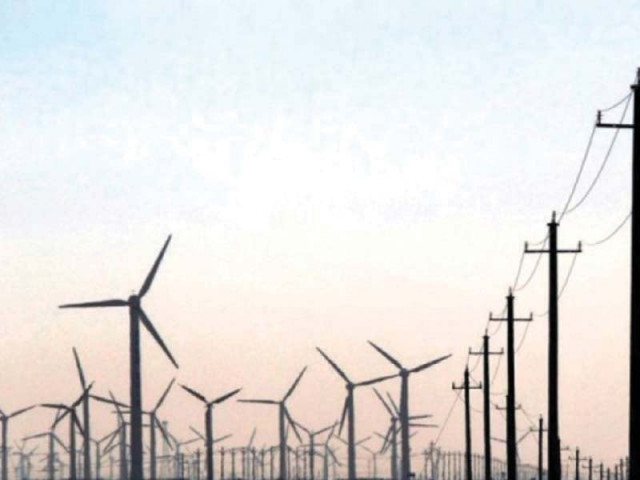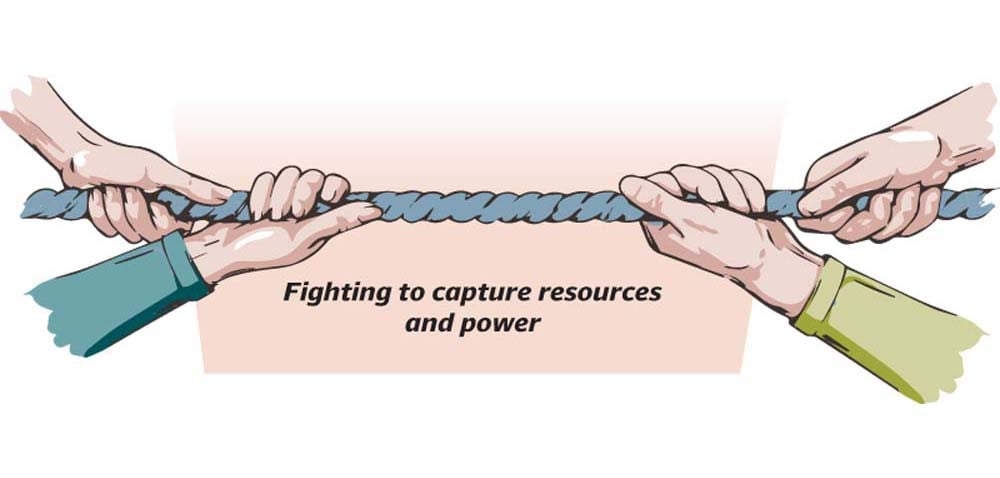‘Elites struggle to capture resources’
British economist says status quo is untenable, harmful to Pakistan

Pakistan’s elites are engaged in a battle for the capture of resources and power as part of a clientelist patronage state, said British economist Stefan Dercon, on Friday. He emphasised that their motivation does not prioritise economic growth and development in the country.
Dercon argued that there is an underlying elite bargain for the status quo among powerful elite groups comprising the leading political class, leading business class, leading individuals in the military, leading figures in civil society, leading members of the civil service, intellectuals, and journalists. The British author and professor of economic policy at Oxford University contended that all these groups have an implicit agreement to maintain the status quo, with growth and development not being a core motivation for the dominant political class or the military.
He explained that economic policies are driven by a quest to retain power as part of a clientelism patronage-based state. Those not in power would attempt to disrupt any stability to gain power and control the clientelist state. Additionally, Dercon elaborated that the political class in Pakistan is in competition with the military over who should control access to resources.
The diagnosis by the British economist appears accurate, as Pakistani politicians and military generals have long been on a quest to capture powerful positions and resources. One political party would continually destabilise the system until it comes to power, resulting in a setback for the country’s economy.
Pakistani analysts have also highlighted the elite capture of state resources and past moves by military generals to destabilise democratic governments.
According to Dercon, growth and development would disrupt the status quo; hence, it does not align with the interests of these groups. He added that a low degree of implementation of economic reform is part of the same political-economic equilibrium.
Dercon, who is also a former Chief Economist at Department for International Development (DFID), met with the caretaker finance minister along with the British High Commissioner to Pakistan, Miss Jane Marriott.
Pakistan’s elites have remained focused on maintaining the status quo and bargaining for a clientelism patronage-based state. There has been fierce competition over who should control the patronage. There is very little common purpose, and the approach of “winner takes all” dominates the competition. He argued that the status quo is untenable and harmful to Pakistan, and even the elite are now losing. He emphasised the need for common ground to ensure continuity of growth and development.
Dercon contended that low tax collection is part of this elite bargain equilibrium, as are high subsidies, low savings, and investments. The poor business environment is intended to discourage foreign direct investment. He added that these factors often lead to poor decision-making, resulting in macroeconomic fiscal crises.

DESIGN: IBRAHIM YAHYA
While many Asian and African countries have made progress over the past few decades, Pakistan faces the unfortunate situation of being surpassed by India and Bangladesh in terms of GDP per capita growth, he said. Countries like Ghana had a similar GDP per capita to Pakistan in the 1990s but have now exceeded it.
The countries that made progress in terms of development had a GDP per capita growth rate of over 4% per annum. Ghana, Ethiopia, Indonesia, Sri Lanka, Bangladesh, India, and China achieved annual income increases in the range of 4.2% to 12.7%.
In contrast, Pakistan and Nigeria had a GDP per capita growth rate of up to 2.6% from 1990 to 2021. While Pakistan was on par with Ghana in 1990, it is now falling behind India and Bangladesh. The economist even noted that “Even Nepal is converging on Pakistan.”
Dercon argued that the issues in these countries include governance, political problems, and corruption. However, these countries still managed to grow.
Pakistan’s problem is not a lack of capability or capacity, as it has plenty of smart and capable individuals. The issue arises where politics and economics intersect. Elite bargain deals typically revolve around how to govern access to resources and powerful positions, he pointed out.
The deal is such that there is very little interest in growing the pie; instead, it centres on a “winner takes all” approach, with the role of others being to fight and destabilise until they can seize control.
The deal is essentially a zero-sum game. Instead of an elite bargain for growth and development, Pakistan has a deal that prioritises control of resources, concluded Dercon.
Published in The Express Tribune, September 23rd, 2023.
Like Business on Facebook, follow @TribuneBiz on Twitter to stay informed and join in the conversation.



















COMMENTS
Comments are moderated and generally will be posted if they are on-topic and not abusive.
For more information, please see our Comments FAQ